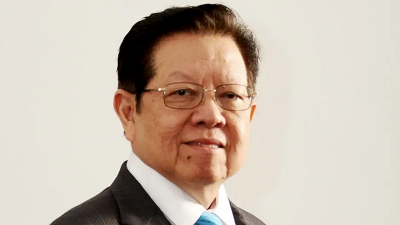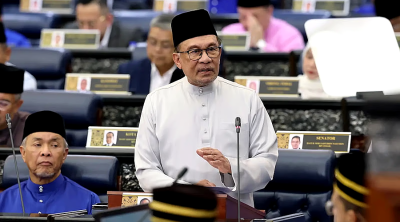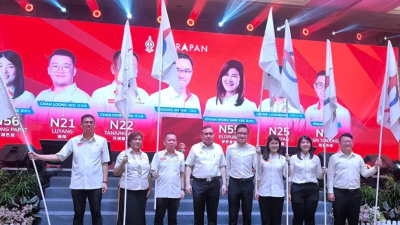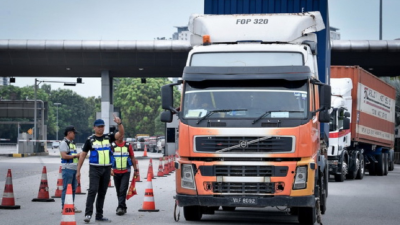
Prime Minister Datuk Seri Anwar Ibrahim and 31 cabinet ministers recently joined a two-day, one-night brainstorming camp to discuss development plans that will benefit the rakyat.
This shows that the Unity Government is indeed placing a lot of emphasis on the revitalisation of the country’s economy. Unfortunately, due to some unfavourable factors, it will not be easy for the Anwar administration to achieve its goals.
The Statistics Department has projected the country’s 2023 last quarter GDP growth to be just around 3.4%, with the full-year growth at 3.8%, far below the 8.7% recorded in 2022.
In the meantime, December exports also fell drastically by 10%, more than market anticipation, while full-year exports contracted 8%.
Additionally, the United States saw an unexpected rise in December inflation, prompting the Fed to defer its rate cut plan.
As a consequence, the ringgit has trended downwards against the greenback. And the attacks on Red Sea cargo ships by Hunthi militants have only served to send shipping fees through the roof, and push domestic goods prices higher.
While we have come under tremendous stress from slowing global economy and trade, geopolitical conflicts continue to disrupt supply chains, and this is expected to hamper the Unity Government’s effort to lower the cost of living for Malaysians.
Although the country’s consumer price index (CPI) stabilised at 1.5% last month, many people still feel the weight of soaring goods prices. And the 22 sen per cubic metre water tariff hike for consumers on Peninsular Malaysia and Labuan Federal Territory, already approved by the government to take effect from next month, is poised to exacerbate the burden of the rakyat.
In view of this, with the economic outlook still gloomy against the backdrop of a bleak external environment, it will be a tall order for PM Anwar to mitigate the negative sentiment within a short time. However, there is still prospect for the economy to stage a full and strong recovery in the long run.
Former PM Tun Mahathir expressed his concern about Anwar’s leadership when the latter had just assumed his post in December 2022.
Mahathir contested that Anwar could not take the country past the many challenges of post-pandemic economic recovery, based on his evaluation of Anwar’s performance in tackling the regional financial crisis as finance minister more than two decades ago.
Anyway, judging from his performance after taking office over a year ago, whichever way we look at it, Anwar is still doing much better than Mahathir. At least he knows know to create wealth by having peace with other countries and will not embark on any flashy but useless white elephant projects.
No doubt, Mahathir is still priding himself for taking the country down the path of rapid economic expansion back in the 1990s, but that was largely a result of developed countries shifting their labour-intensive industries to developing countries.
Back then foreign investors were lured by the lucrative investment policies of the Mahathir administration, coupled with our relatively cheap manpower (thanks to the availability of an enormous pool of migrant workers), to set up their manufacturing bases in this country.
Nevertheless, with the subsequent rise of countries such as China and Vietnam, and the increase in labour cost here, Malaysia has since been stuck in a bottleneck.
Another achievement that the former PM took a lot of pride in was his capital control measure which helped the country safely sail past the 1997 Asian financial crisis.
The thing is, the principal objective of the capital control policy was to bail out Mahathir’s cronies.
Moreover, by adopting the capital control measure, Malaysia could avoid the necessary, albeit painful, reforms that could bring down his Barisan Nasional government.
Mahathir’s obsession with grandiose and showy projects have significantly weakened the country’s fundamentals. It is now time to mend the damage and take the country out of the bottom of the valley.
The economy of this country could have been very different today, if we decisively took the painful way of instituting the necessary reforms.
As for some of the industrialisation plans implemented by Mahathir, including Perwaja Steel and the national car project, they have failed very badly, and have almost dried up the national coffers. Other massive infrastructure projects have only expanded the government’s debt base.
During his second term as prime minister, all that he did was to ask Japan for low-interest loans. He had no clue how to reduce the government’s RM1 trillion debt.
Mahathir even claimed last October that the country still had RM1 trillion in reserves that could be used to settle the loans, including over US$100 billion held by Bank Negara, RM1 trillion investment assets held by KWSP, over RM300 billion worth of assets managed by PNB, RM80 billion of deposits with Tabung Haji, and almost RM150 billion with KWAP.
Such a remark exposes his total ignorance in economics. Digging into the reserves to service the debts will rob a country of its defensibility and will sink its currency to rock bottom.
We can safely say that the country’s downfall and its middle-income trap dilemma today have very much to do with this old man. He can be anything but the “Father of Modern Malaysia”.
Compared to Tun M, Anwar is way more pragmatic. He tries to cement the country’s ties with China, Japan and Singapore, allows visitors from China and other countries to enter Malaysia visa-free, works very hard to sell Malaysia to international investors, and will not confront Singapore or China because of internal political needs at the expense of national interests.
Anwar is also trying hard to reduce government expenses and debt level, in particular slashing subsidies, and implement progressive wage model to raise the incomes of Malaysians.
The Unity Government has also embarked on energy transformation programme, digital transformation, Technical and Vocational Education and Training (TVET) Programme, as well as AI development, while initiating the Automotive High Tech Valley (AHTV) project in Tanjung Malim, and the Johor-Singapore Special Economic Zone (JSSEZ).
If implemented successfully, these projects will remarkably help revitalise the national economy.
Of course, compared to Mahathir’s time, Anwar’s projects will take time to show the results, and will not be as glitzy and awe-inspiring, but most importantly they are practical!
Mahathir’s obsession with grandiose and showy projects have significantly weakened the country’s fundamentals. It is now time to mend the damage and take the country out of the bottom of the valley.
ADVERTISEMENT
ADVERTISEMENT








































